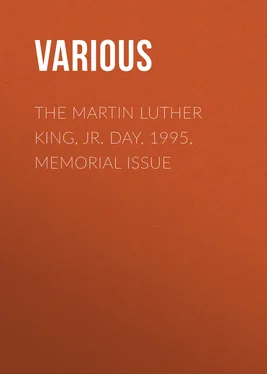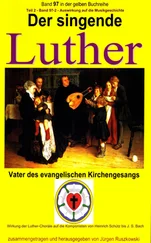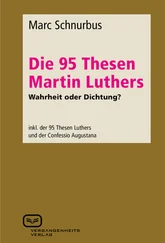Various - The Martin Luther King, Jr. Day, 1995, Memorial Issue
Здесь есть возможность читать онлайн «Various - The Martin Luther King, Jr. Day, 1995, Memorial Issue» — ознакомительный отрывок электронной книги совершенно бесплатно, а после прочтения отрывка купить полную версию. В некоторых случаях можно слушать аудио, скачать через торрент в формате fb2 и присутствует краткое содержание. Жанр: foreign_prose, История, foreign_edu, foreign_antique, на английском языке. Описание произведения, (предисловие) а так же отзывы посетителей доступны на портале библиотеки ЛибКат.
- Название:The Martin Luther King, Jr. Day, 1995, Memorial Issue
- Автор:
- Жанр:
- Год:неизвестен
- ISBN:нет данных
- Рейтинг книги:3 / 5. Голосов: 1
-
Избранное:Добавить в избранное
- Отзывы:
-
Ваша оценка:
- 60
- 1
- 2
- 3
- 4
- 5
The Martin Luther King, Jr. Day, 1995, Memorial Issue: краткое содержание, описание и аннотация
Предлагаем к чтению аннотацию, описание, краткое содержание или предисловие (зависит от того, что написал сам автор книги «The Martin Luther King, Jr. Day, 1995, Memorial Issue»). Если вы не нашли необходимую информацию о книге — напишите в комментариях, мы постараемся отыскать её.
The Martin Luther King, Jr. Day, 1995, Memorial Issue — читать онлайн ознакомительный отрывок
Ниже представлен текст книги, разбитый по страницам. Система сохранения места последней прочитанной страницы, позволяет с удобством читать онлайн бесплатно книгу «The Martin Luther King, Jr. Day, 1995, Memorial Issue», без необходимости каждый раз заново искать на чём Вы остановились. Поставьте закладку, и сможете в любой момент перейти на страницу, на которой закончили чтение.
Интервал:
Закладка:
Various
The Martin Luther King, Jr. Day, 1995, Memorial Issue
SOJOURNER TRUTH, THE LIBYAN SIBYL by Harriet Beecher Stowe
Many years ago, the few readers of radical Abolitionist papers must often have seen the singular name of Sojourner Truth, announced as a frequent speaker at Anti-Slavery meetings, and as travelling on a sort of self-appointed agency through the country. I had myself often remarked the name, but never met the individual. On one occasion, when our house was filled with company, several eminent clergymen being our guests, notice was brought up to me that Sojourner Truth was below, and requested an interview. Knowing nothing of her but her singular name, I went down, prepared to make the interview short, as the pressure of many other engagements demanded.
When I went into the room, a tall, spare form arose to meet me. She was evidently a full-blooded African, and though now aged and worn with many hardships, still gave the impression of a physical development which in early youth must have been as fine a specimen of the torrid zone as Cumberworth's celebrated statuette of the Negro Woman at the Fountain. Indeed, she so strongly reminded me of that figure, that, when I recall the events of her life, as she narrated them to me, I imagine her as a living, breathing impersonation of that work of art.
I do not recollect ever to have been conversant with any one who had more of that silent and subtle power which we call personal presence than this woman. In the modern Spiritualistic phraseology, she would be described as having a strong sphere. Her tall form, as she rose up before me, is still vivid to my mind. She was dressed in some stout, grayish stuff, neat and clean, though dusty from travel. On her head, she wore a bright Madras handkerchief, arranged as a turban, after the manner of her race. She seemed perfectly self-possessed and at her ease,—in fact, there was almost an unconscious superiority, not unmixed with a solemn twinkle of humor, in the odd, composed manner in which she looked down on me. Her whole air had at times a gloomy sort of drollery which impressed one strangely.
"So this is YOU," she said.
"Yes," I answered.
"Well, honey, de Lord bless ye! I jes' thought I'd like to come an' have a look at ye. You's heerd o' me, I reckon?" she added.
"Yes, I think I have. You go about lecturing, do you not?"
"Yes, honey, that's what I do. The Lord has made me a sign unto this nation, an' I go round a'testifyin', an' showin' on 'em their sins agin my people."
So saying, she took a seat, and, stooping over and crossing her arms on her knees, she looked down on the floor, and appeared to fall into a sort of reverie. Her great gloomy eyes and her dark face seemed to work with some undercurrent of feeling; she sighed deeply, and occasionally broke out,—
"O Lord! O Lord! Oh, the tears, an' the groans, an' the moans! O Lord!"
I should have said that she was accompanied by a little grandson of ten years,—the fattest, jolliest woolly-headed little specimen of Africa that one can imagine. He was grinning and showing his glistening white teeth in a state of perpetual merriment, and at this moment broke out into an audible giggle, which disturbed the reverie into which his relative was falling.
She looked at him with an indulgent sadness, and then at me.
"Laws, Ma'am, HE don't know nothin' about it—HE don't. Why, I've seen them poor critters, beat an' 'bused an' hunted, brought in all torn,—ears hangin' all in rags, where the dogs been a'bitin' of 'em!"
This set off our little African Puck into another giggle, in which he seemed perfectly convulsed.
She surveyed him soberly, without the slightest irritation.
"Well, you may bless the Lord you CAN laugh; but I tell you, 't wa'n't no laughin' matter."
By this time I thought her manner so original that it might be worth while to call down my friends; and she seemed perfectly well pleased with the idea. An audience was what she wanted,—it mattered not whether high or low, learned or ignorant. She had things to say, and was ready to say them at all times, and to any one.
I called down Dr. Beecher, Professor Allen, and two or three other clergymen, who, together with my husband and family, made a roomful. No princess could have received a drawing-room with more composed dignity than Sojourner her audience. She stood among them, calm and erect, as one of her own native palm-trees waving alone in the desert. I presented one after another to her, and at last said,—
"Sojourner, this is Dr. Beecher. He is a very celebrated preacher."
"IS he?" she said, offering her hand in a condescending manner, and looking down on his white head. "Ye dear lamb, I'm glad to see ye! De Lord bless ye! I loves preachers. I'm a kind o' preacher myself."
"You are?" said Dr. Beecher. "Do you preach from the Bible?"
"No, honey, can't preach from de Bible,—can't read a letter."
"Why, Sojourner, what do you preach from, then?"
Her answer was given with a solemn power of voice, peculiar to herself, that hushed every one in the room.
"When I preaches, I has jest one text to preach from, an' I always preaches from this one. MY text is, 'WHEN I FOUND JESUS.'"
"Well, you couldn't have a better one," said one of the ministers.
She paid no attention to him, but stood and seemed swelling with her own thoughts, and then began this narration:—
"Well, now, I'll jest have to go back, an' tell ye all about it. Ye see, we was all brought over from Africa, father an' mother an' I, an' a lot more of us; an' we was sold up an' down, an' hither an' yon; an' I can 'member, when I was a little thing, not bigger than this 'ere," pointing to her grandson, "how my ole mammy would sit out o' doors in the evenin', an' look up at the stars an' groan. She'd groan an' groan, an' says I to her,—
"'Mammy, what makes you groan so?'
"an' she'd say,—
"'Matter enough, chile! I'm groanin' to think o' my poor children: they don't know where I be, an' I don't know where they be; they looks up at the stars, an' I looks up at the stars, but I can't tell where they be.
"'Now,' she said, 'chile, when you're grown up, you may be sold away from your mother an' all your ole friends, an' have great troubles come on ye; an' when you has these troubles come on ye, ye jes' go to God, an' He'll help ye.'
"An' says I to her,—
"'Who is God, anyhow, mammy?'
"An' says she,—
"'Why, chile, you jes' look up DAR! It's Him that made all DEM!"
"Well, I didn't mind much 'bout God in them days. I grew up pretty lively an' strong, an' could row a boat, or ride a horse, or work round, an' do 'most anything.
"At last I got sold away to a real hard massa an' missis. Oh, I tell you, they WAS hard! 'Peared like I couldn't please 'em, nohow. An' then I thought o' what my old mammy told me about God; an' I thought I'd got into trouble, sure enough, an' I wanted to find God, an' I heerd some one tell a story about a man that met God on a threshin'-floor, an' I thought, 'Well an' good, I'll have a threshin'-floor, too.' So I went down in the lot, an' I threshed down a place real hard, an' I used to go down there every day, an' pray an' cry with all my might, a-prayin' to the Lord to make my massa an' missis better, but it didn't seem to do no good; an' so says I, one day,—
"'O God, I been a-askin' ye, an' askin' ye, an' askin' ye, for all this long time, to make my massa an' missis better, an' you don't do it, an' what CAN be the reason? Why, maybe you CAN'T. Well, I shouldn't wonder ef you couldn't. Well, now, I tell you, I'll make a bargain with you. Ef you'll help me to git away from my massa an' missis, I'll agree to be good; but ef you don't help me, I really don't think I can be. Now,' says I, 'I want to git away; but the trouble's jest here: ef I try to git away in the night, I can't see; an' ef I try to git away in the daytime, they'll see me, an' be after me.'
Читать дальшеИнтервал:
Закладка:
Похожие книги на «The Martin Luther King, Jr. Day, 1995, Memorial Issue»
Представляем Вашему вниманию похожие книги на «The Martin Luther King, Jr. Day, 1995, Memorial Issue» списком для выбора. Мы отобрали схожую по названию и смыслу литературу в надежде предоставить читателям больше вариантов отыскать новые, интересные, ещё непрочитанные произведения.
Обсуждение, отзывы о книге «The Martin Luther King, Jr. Day, 1995, Memorial Issue» и просто собственные мнения читателей. Оставьте ваши комментарии, напишите, что Вы думаете о произведении, его смысле или главных героях. Укажите что конкретно понравилось, а что нет, и почему Вы так считаете.












